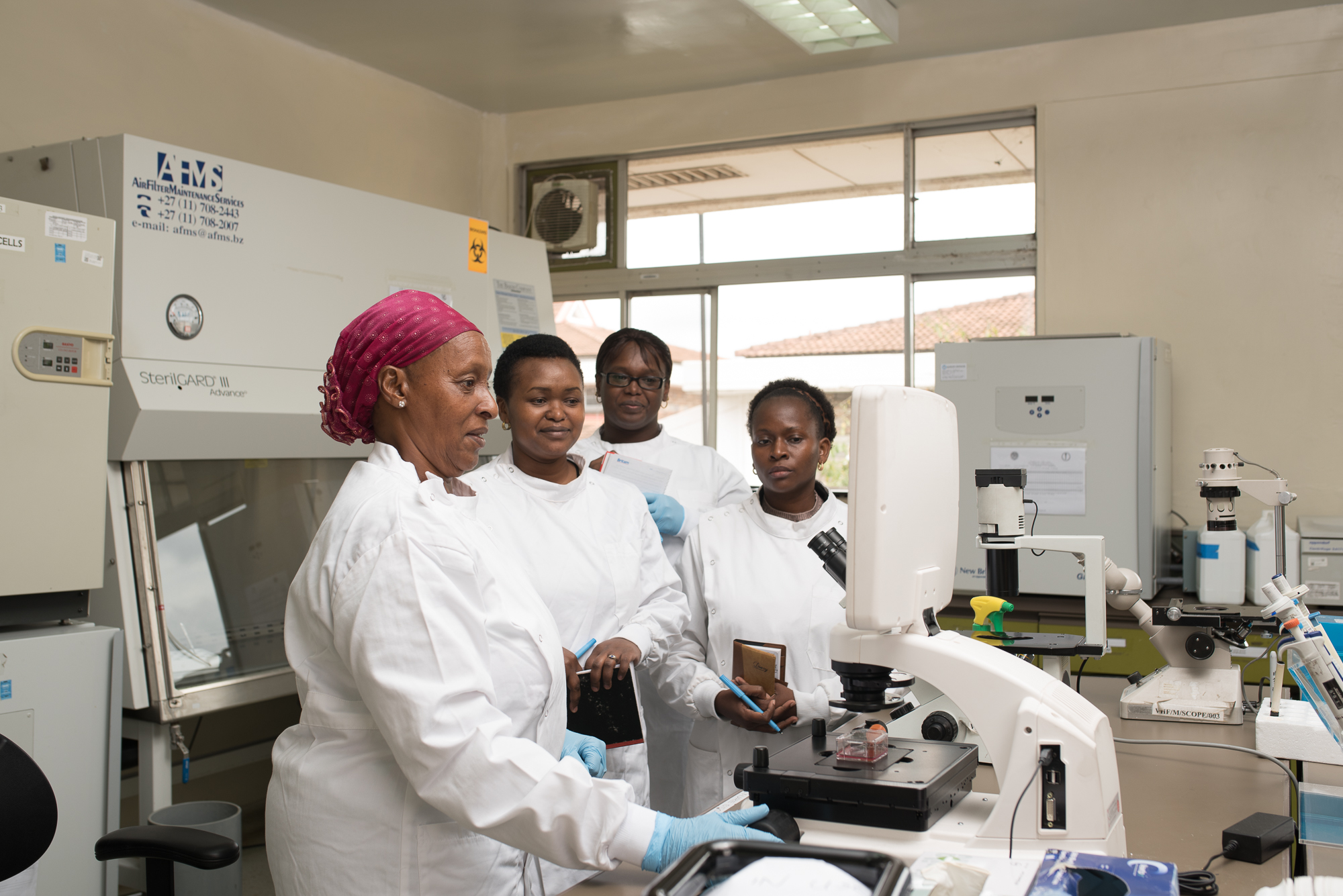Nairobi, Kenya I 04 December 2019 I Five African scientists have received funding to conduct research that will contribute to global efforts to reduce the burden and threat of locally relevant infectious diseases in Africa.
The five fellows will be funded through the TIBA-AAS Out of Africa Postdoctoral Fellowship programme for a year as visiting fellows of the University of Edinburgh. They will conduct basic and implementation research ranging from the impact of mass drug administration as a means of controlling parasitic diseases of public health concern to the ethics of clinical trials conducted in Africa. Their research addresses knowledge gaps and will generate new knowledge, which will advance efforts to tackle infectious diseases.
The fellowship programme is a groundbreaking, new collaboration between the African Academy of Sciences (AAS) and the UK National Institutes of Health Research Global Health Unit Tackling Infections to Benefit Africa (TIBA) at the University of Edinburgh. TIBA is an Africa-led, wide-ranging, multi-disciplinary partnership which brings together world-class researchers from nine African countries, Botswana, Ghana, Kenya, Rwanda, South Africa, Sudan, Tanzania, Uganda and Zimbabwe plus colleagues from the University of Edinburgh to generate new knowledge and inform comparative analyses of health systems. Funding for the Fellowships has been provided by the University of Edinburgh.
The five scientists, from Egypt, Kenya, Nigeria, and South Africa, and are the first cohort to be funded through the TIBA-AAS Out of Africa Postdoctoral Fellowship programme are:
Dr Mohamed Elhadidy, University of Science and Technology, Zewail City of Science and Technology, Egypt
Dr Mohamed Elhadidy will investigate the ecology, epidemiology, and evolution of clinical Staphylococcus aureus (a zoonotic bacterial pathogens) using different comparative genome analysis and population genetics approaches. His project will use various genomics tools for molecular characterization of different genetic markers that play a role in virulence potential, antimicrobial resistance and transmission of this pathogen.
University of Edinburgh Supervisor - Professor Ross Fitzgerald- https://www.ed.ac.uk/roslin/lbep/people/ross-fitzgerald
Dr Jesse Gitaka, Mount Kenya University, Kenya
Dr Gitaka’s work will enhance the understanding and use of genetic tools for malaria surveillance. It will explore the impact of mass drug administration, mass screening and treatment and how the travel of infected individuals across different geographical regions has impacted the genetic diversity of Plasmodium falciparum — the species of Plasmodium that causes malaria in humans — in Kenya’s Lake Victoria Islands. University of Edinburgh Supervisor - Professor Francisca Mutapi-http://pig.bio.ed.ac.uk/
Dr Miriam Njoki Karinja, University of Nairobi Institute of Tropical and Infectious Diseases, Kenya
Dr Karinja aims to determine spatial-temporal patterns and hotpots for infectious diseases in Kenya using data from the Integrated Disease Surveillance and Response (IDSR) for the period 2012 -2019. She also intends to study the functionality and efficiency of community health units in collecting data and to determine how these data affect quality and availability at the national level for decision-making.
University of Edinburgh Supervisor - Professor Mark Woolhouse-https://www.wiki.ed.ac.uk/display/Epigroup/Epigroup+-+Home
Home institution supervisor - Dr Thumbi Mwangi -https://globalhealth.wsu.edu/team/faculty/samuel-thumbi-mwangi
Dr Ajoke Ehimiyein, Ahmadu Bello University, Nigeria
Dr Ehimiyein will work on the use of laboratory models and a range of immunological and microscopic techniques to investigate immune-related pathology in the intestine during Plasmodium chabaudi infection in mice.
University of Edinburgh supervisors - Dr. Joanne Thompson (Institute of Immunology and Infectious Research, School of Biological Sciences)- https://www.ed.ac.uk/profile/joanne-thompson, and Dr. Jason Mooney (The Roslin Institute, University of Edinburgh) - https://www.ed.ac.uk/profile/dr-jason-mooney;
Home Institution Supervisor - Dr. Emmanuel Oludare Balogun-
https://www.researchgate.net/profile/Emmanuel_Balogun2
Dr Blessing Silaigwana, University of KwaZulu-Natal, South Africa
Dr Silaigwana will explore clinical trial designs and ethical considerations governing emergency research during epidemics in Africa. His project will contribute to developing an African framework for research ethics during outbreaks of emerging and re-emerging infectious diseases. University of Edinburgh Supervisors: Dr Geoff Banda- http://www.innogen.ac.uk/person/geoff-banda, Dr Sarah Chan- https://www.ed.ac.uk/profile/sarah-chan. Home institution supervisor - Professor Sarah Edwards, https://www.ucl.ac.uk/sts/people/professor-sarah-j-l-edwards
TIBA
NIHR Global Health Research Unit Tackling Infections to Benefit Africa at the University of Edinburgh — is an Africa-led, wide-ranging, multi-disciplinary research partnership that explores and draws lessons from the way different African health systems tackle infectious diseases. TIBA supports research and training across nine African countries and is currently training over 30 postdoctoral students and fellows in Africa and Edinburgh. Join us on twitter @TibaPartnership and learn more at http://tiba-partnership.org/
For more information about the TIBA, please contact:
The TIBA Secretariat at info@tiba-partnership.org | +44 0131 650 8661
The University of Edinburgh
The University of Edinburgh is a world-leading research-intensive University, which addresses tomorrow’s greatest challenges. It celebrates and strengthens its deep-rooted and distinctive internationalism, by attracting the world’s best minds and building innovative global partnerships for research, teaching and impact.
https://www.ed.ac.uk/

